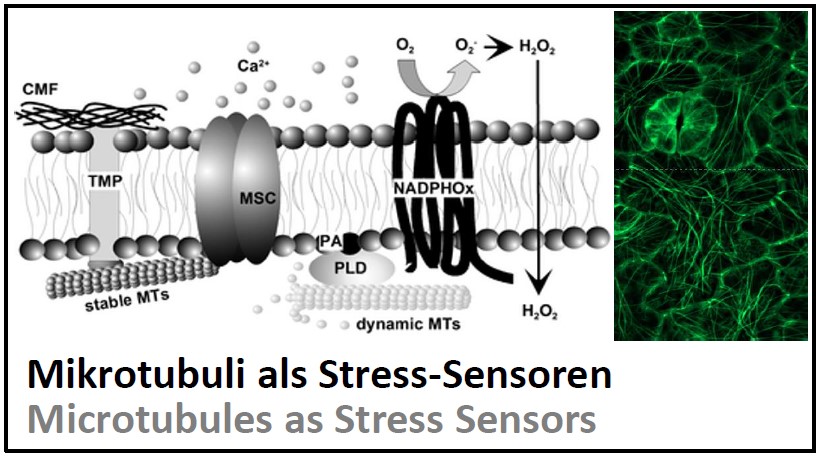10 Mikrotubuli und die Wahrnehmung von Stress
 |
Microtubules help plant cells to discriminate different forms of stress. [29] Nick P (2013) Microtubules, and signaling in abiotic stress. Plant Journal 75, 309-323 108 quotations. pdf
What is it about? Half a century after their discovery, microtubules were the topic of an international special issue, summarising the state of the art in plant microtubule research. While their role for cell division and expansion has been studied intensively, the function of microtubules for sensing and processing of stress signals has rarely been addressed outside of our group. Due to their tubular structure, microtubules can focus even minute mechanic loads and, thus, render them accessible for sensing. In fact, microtubules are central for the processing of mechanic signals, for instance in our sense of balance or for hearing. Plants use microtubules to sense physical stress signals. These are not only stimuli such as gravity, touch, or wounding, but also stress conditions that are not straightforwardly mechanic, such as soil salinity, drought, or cold. This review summarises what is known about the role of microtubules in stress signalling and develops a model, how the cell can discriminate the plethora of stress conditions to deploy the appropriate adaptive response. By virtue of microtubules the mechanic component of numerous stress signals can be related in time with other early signals, such as the generation of reactive oxygen species at the plasma membrane. Depending on the temporal sequence, the “meaning” of the signal changes in quality. It took some years, until this work became understood. Meanwhile it is under my most quoted publications.
|
